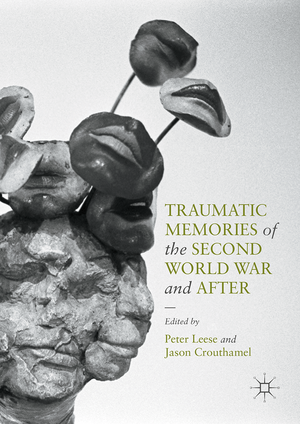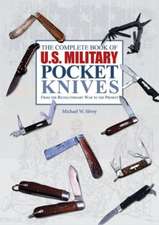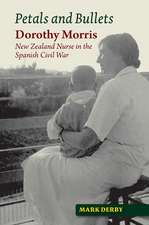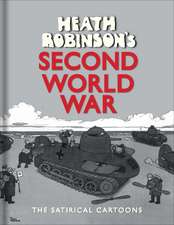Traumatic Memories of the Second World War and After
Editat de Peter Leese, Jason Crouthamelen Limba Engleză Hardback – 12 oct 2016
| Toate formatele și edițiile | Preț | Express |
|---|---|---|
| Paperback (1) | 639.41 lei 6-8 săpt. | |
| Springer International Publishing – 27 iun 2018 | 639.41 lei 6-8 săpt. | |
| Hardback (1) | 643.99 lei 6-8 săpt. | |
| Springer International Publishing – 12 oct 2016 | 643.99 lei 6-8 săpt. |
Preț: 643.99 lei
Preț vechi: 757.63 lei
-15% Nou
Puncte Express: 966
Preț estimativ în valută:
123.22€ • 129.00$ • 101.96£
123.22€ • 129.00$ • 101.96£
Carte tipărită la comandă
Livrare economică 05-19 aprilie
Preluare comenzi: 021 569.72.76
Specificații
ISBN-13: 9783319334691
ISBN-10: 3319334697
Pagini: 303
Ilustrații: XV, 310 p. 1 illus. in color.
Dimensiuni: 148 x 210 x 26 mm
Greutate: 0.52 kg
Ediția:1st ed. 2016
Editura: Springer International Publishing
Colecția Palgrave Macmillan
Locul publicării:Cham, Switzerland
ISBN-10: 3319334697
Pagini: 303
Ilustrații: XV, 310 p. 1 illus. in color.
Dimensiuni: 148 x 210 x 26 mm
Greutate: 0.52 kg
Ediția:1st ed. 2016
Editura: Springer International Publishing
Colecția Palgrave Macmillan
Locul publicării:Cham, Switzerland
Cuprins
Introduction Peter Leese (University of Copenhagen) and Jason Crouthamel (Grand Valley State University).- Part I. Archive.- 1. Making Trauma Visible Sophie Delaporte (University of Picardie Jules Verne, Amiens).- 2. Moral Injury: Two Perspectives Susan Derwin (University of California, Santa Barbara).- Part II. Wartime.- 3. Testimonies of Trauma: Surviving Auschwitz-Birkenau Lisa Pine (London South Bank University).- 4. Rethinking Civilian Neuroses in the Second World War Hazel Croft, Birkbeck College (University of London).- Part III. Postwar.- 5. ‘No longer normal’: Traumatized Red Army Veterans in Postwar Leningrad Robert Dale (Newcastle University).- 6. Retreating into Trauma: The Fragebogen, Denazification, and Victimhood in Postwar Germany W. Mikkel Dack (University of Calgary).- Part IV. Recollection.- 7. Public and Private. Negotiating Memories of the Korean War Sandra Kessler (University of Mainz).- 8. Endless Aftershock: The Katyń Massacre in Contemporary Polish Culture Maria Kobielska (Jagiellonian University, Cracow).- Part V. Representation.- 9. The Metaphorization of Rape: Trauma and the Ethics of Representation Marzena Sokołowska-Paryż (University of Warsaw).- 10. Traumatic Displacements: the memory films of Jonas Mekas and Robert Vas Peter Leese (University of Copenhagen).- Part VI. A Coda on Trauma.- 11. Why History Hurts Joanna Bourke (Birkbeck, University of London).
Notă biografică
Peter Leese is Associate Professor of History at the University of Copenhagen, Denmark. His publications include Shell Shock: Traumatic Neurosis and the British Soldiers of the First World War (2002), and Britain Since 1945: Aspects of Identity (2006). Together with Jason Crouthamel he is also the co-editor of Psychological Trauma and the Legacies of the First World War (2016).
Jason Crouthamel is an Associate Professor of History at Grand Valley State University, USA. He is the author of An Intimate History of the Front: Masculinity, Sexuality and German Soldiers in the First World War (2014) and The Great War and German Memory: Society, Politics and Psychological Trauma, 1914-1945 (2009). He is also the co-editor, with Peter Leese, of Psychological Trauma and the Legacies of the First World War (2016).
Jason Crouthamel is an Associate Professor of History at Grand Valley State University, USA. He is the author of An Intimate History of the Front: Masculinity, Sexuality and German Soldiers in the First World War (2014) and The Great War and German Memory: Society, Politics and Psychological Trauma, 1914-1945 (2009). He is also the co-editor, with Peter Leese, of Psychological Trauma and the Legacies of the First World War (2016).
Textul de pe ultima copertă
This collection investigates the social and cultural history of trauma to offer a comparative analysis of its individual, communal, and political effects in the twentieth century. Particular attention is given to witness testimony, to procedures of personal memory and collective commemoration, and to visual sources as they illuminate the changing historical nature of trauma. The essays draw on diverse methodologies, including oral history, and use varied sources such as literature, film and the broadcast media. The contributions discuss imaginative, communal and political responses, as well as the ways in which the later welfare of traumatized individuals is shaped by medical, military, and civilian institutions. Incorporating innovative methodologies and offering a thorough evaluation of current research, the book shows new directions in historical trauma studies.
Caracteristici
Explores and challenges the definition of warfare trauma in the 20th century Provides a richly interdisciplinary scope to warfare trauma studies, using historical, literary and visual media readings Creates a nuanced gendered view of warfare trauma







